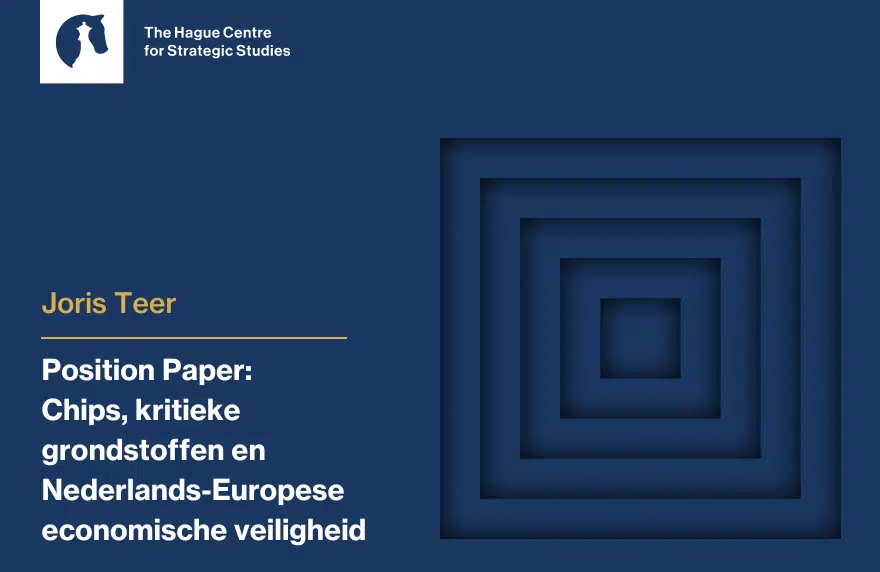Research
This is the English-language executive summary of the Dutch-language HCSS report “Competitie tussen grootmachten en maatschappelijke stabiliteit in Nederland: de risico’s van Russisch gas, Chinese grondstoffen en Taiwanese chips voor vitale sectoren.”
The war in Ukraine is an expression of an underlying trend: great powers, that is states with exceptional political, economic and military power, are embroiled in an intensifying geopolitical competition. This development has the potential to disrupt the Netherlands, as it threatens the foundations of Dutch prosperity, well-being and security, write HCSS strategic analysts Joris Teer, Mattia Bertolini and Benedetta Girardi.
This rapidly intensifying great power competition threatens to put further pressure on social stability in the Netherlands, as well as in other European countries. This foresight-study maps possible effects of (a series of) geopolitical crises on social stability in the Netherlands.10 In particular, a crisis in East Asia could seriously disrupt the supply of raw materials from China and semiconductors from Taiwan. To illustrate these risks, we outline two geopolitical crisis scenarios occurring between 2028 and 2032: an embargo of critical raw materials by China imposed against the EU and a Chinese maritime blockade of Taiwan. Both scenarios would have serious implications. Raw materials and semiconductors are not just essential building blocks for the energy transition and digitalisation: both raw materials and semiconductors enable the functioning of entire vital sectors, namely (1) the medical sector; (2) the defence and security domain; (3) the renewable energy system; (4) sustainable mobility; and (5) Information and Communications Technology (ICT).
This report adds a new perspective because it specifically identifies the potential consequences of disruptions in the supply of raw materials and semiconductors for these vital sectors in the Netherlands, and hence for social stability. It outlines a crisis situation that could arise over the next five to ten years if the Netherlands and the EU do not take large-scale action in the short-term to become more geopolitically shock-resistant, by among other things reducing unwanted strategic dependencies. By providing insight into the effects of a geopolitical crisis in East Asia on the prosperity, well-being and security of Europe, the report seeks to stress the need for policy-makers and industry to take action.
The long-form Dutch-language version was commissioned by the Netherlands Police, as part of the multiannual Strategic Monitor Police. This research programme, characterised by its “outside-in” and forward-looking focus, aims to map and interpret relevant trends and developments, in order to support the strategy-making processes of the Netherlands Police.
This report is the result of independent research. Responsibility for the content rests entirely with the authors.
Authors: Joris Teer, Mattia Bertolini and Benedetta Girardi. With contributions by: Pieter Bindt, Lucia van Geuns, Rob de Wijk, Michel Rademaker, Eline de Jong, Abe de Ruijter, Frederik Mertens, Giovanni Cisco and Adam Meszaros. Visualisations by Jelle van der Weerd.










